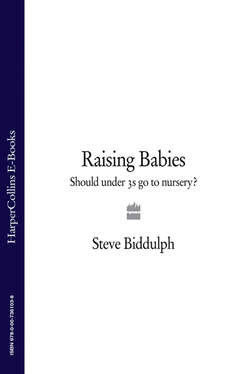Читать книгу Raising Babies: Should under 3s go to nursery? - Steve Biddulph, Steve Biddulph - Страница 29
The health consequences of distant parenting
ОглавлениеDoes it really matter if a child is close to its parents? We usually assume that close parent–child bonds are the fundamentals of a happy start to life. But why must this be so? Do we really need closeness to grow up well?
A unique and little-known American study was carried out into just this question, beginning with young adults in the 1950s and revisiting them 35 years later when they were in late middle age. Detailed interviews and medical assessments were carried out at the start of the study, including questions about how close they felt to their mother and their father.2
When the subjects were tracked down 35 years later, their medical records were accessed and extensive assessments and interviews were carried out. What was discovered was quite astounding: 91 per cent of those who did not have a close relationship with their mothers (by their own assessment) had been diagnosed with a serious medical illness in mid-life – double the rate of those who reported a warm relationship. Closeness to fathers, or the lack of it, predicted similar differences in health. Worst off of all in health were those who had been close to neither mother or father.
The health conditions included heart disease, cancer, ulcers, alcoholism, hypertension and chronic asthma. As recent brain and immune system studies have revealed, love keeps you well. And the effects of love in childhood seem to keep on maintaining your health through life. Researcher Dr Norman Anderson, who reviewed these studies in 2003, was able to find over 20 similar studies, with 55,000 participants in total, all of which validated these findings. Being close to one’s parents does matter, and it matters long after you have grown up.
